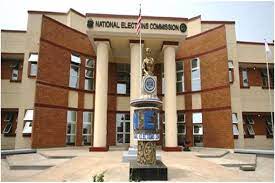Editorial: Creating space for Women and People with Disabilities

This July, the United Nations High Commission for Human Rights Office is spotlighting Women’s political participation globally, focusing on women and girls with disabilities as part of activities marking the 75th anniversary of the Universal Declaration of Human Rights (UDHR) and the 30th anniversary of the Vienna Declaration and Programme of Action for 2023.
The campaign is ongoing just as Liberians are barely 90 days away from Presidential and Legislative Elections in October with very few female aspirants in the race, least to talk of people with disabilities.
Among scores of aspirants for the Presidency, only two females have publicly expressed interest in joining the race for the nation’s highest office with one female pronounced as running mate besides incumbent Vice President Jewel Howard Taylor of the ruling Coalition for Democratic Change. There is conspicuous absence of people with disabilities, including women.
UN Resident Coordinator in Liberia, Christine Umutoni says while women’s political participation rates are low overall, women with disabilities are even more underrepresented due to discriminatory norms and attitudes based on gender and disability. Thus, people consider them incapable of voting or holding office due to stereotypical characteristics ascribed to women and physical or intellectual disabilities.
She notes that this also contributes to a lack of access to polling stations, inaccessible voting material, and few women political candidates with disabilities.
“Electoral processes should be inclusive and participatory, and any action to improve women’s participation in political and public life must include women and girls with disabilities”, Madam Umutoni underscores.
This observation should ring bell to policymakers in Liberia, particularly people and institutions that are responsible for electoral matters, including the National Elections Commission on the need to go back to the drawing board to view the structure of our electoral system with a focus on creating space for women and people with disabilities.
Such effort should go beyond just calling on male-dominated politicians and leaders of political parties to include women in their structure and activities to getting them on the ballots and campaigning for them to win.
[bsa_pro_ad_space id=1]
We should be proud as Liberians for making history in 2005 by electing the first female President in Africa, Madam Ellen Johnson Sirleaf. But there is more we can and should do for women’s participation in politics, including those with disabilities.
Women and girls are disadvantaged in so many ways, including cultural and religious norms in Africa that confine them to domestic roles such as wives, mothers and caretakers of the home with little regard for their potentials for public service. We need to strike a balance to bring equality and equity to the political landscape by encouraging and affording more opportunities for women (our daughters, sisters and nieces) to participate in politics, including those with disabilities.




















